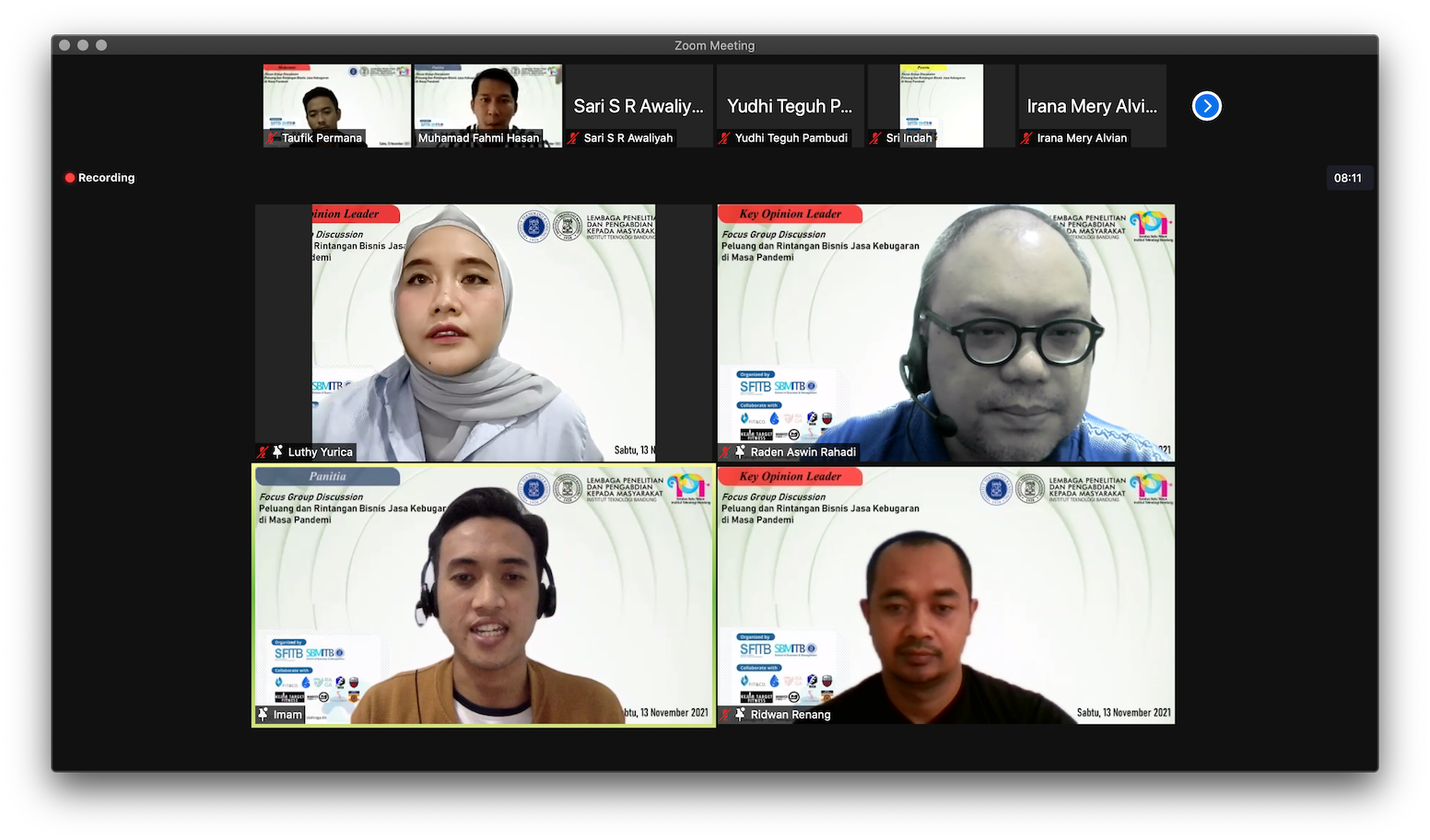The Covid-19 pandemic that swept the world for the past two years had a significant impact on businesses, including the fitness industry. With social restrictions and strict health protocols implementation, many fitness services businesses faced obstacles and even setbacks in their business development. To address this issue, SBM ITB collaborated with SF ITB to hold a Focus Group Discussion session by inviting practitioners and experts with experience in the fitness industry.
 The CEO of Bandung International Swimming School and Akhwat Gym, Ridwan Purnama, admitted that this pandemic is quite a difficult hurdle, especially for the fitness industry. However, with a growth mindset, Ridwan could face the pandemic as an opportunity to experiment with developing his business.
The CEO of Bandung International Swimming School and Akhwat Gym, Ridwan Purnama, admitted that this pandemic is quite a difficult hurdle, especially for the fitness industry. However, with a growth mindset, Ridwan could face the pandemic as an opportunity to experiment with developing his business.
“For me, it all depends on our mindset. Do we want to consider this pandemic a disaster or a means to be grateful? I did not wait for the rules to get loosened, but I kept going slowly, and I did what could be done,” he said.
Due to social restrictions, Ridwan’s gym and swimming school had to stop operating. However, Ridwan continues to build customers through regularly holding webinars two to three times a week to share knowledge and increase public enthusiasm for exercising. So, when social restrictions began to lift, his business got significant growth.
The Founder of Raga Indonesia, Luthy Yurica, discussed the fitness service business opportunity. According to Luthy, public interest in the sports fitness service industry increased during the pandemic because more and more coaches even doctors educate people about the importance of exercise on the internet. In addition, the work-from-home situation also supports people to actively exercising to maintain their health. Therefore, it is crucial to take advantage of this opportunity with proper analysis and planning.
“First, Observe, what do people like, what are their needs, and determine your target market. The potential to improve the fitness industry is huge; there is a lot to develop,” said Luthy.
Luthy also encouraged collaboration with fellow fitness industry players. Back in 2014, there were not many fitness businesses, but now that there are more, we can collaborate. Don’t focus too much on competing, don’t get too “heated.”
Raden Aswin Rahadi added a new topic to the discussion, which is about the financial health of businesses. Aswin highlighted the problems that often arise in SME businesses’ finance, such as the unclear line between the owner’s finances and the business.
According to Aswin, three aspects must be met for a company to be financially healthy, namely Manage, where the company can fulfill its financial obligations properly; Plan, i.e., the company has a plan for business risks; and Capital, where the company should have sufficient financial reserves. Aswin also held interactive sessions with participants to see the financial health scores of their respective businesses.
General, it’s easy to talk about personal and family finances. However, in business, some aspects must be detailed, such as debts, loans, and others. Through this scorecard, Aswin tries to introduce the importance of doing a financial check and determining the financial position of our company. Is it good, is it healthy? It also maps our strengths and what must be improved.




